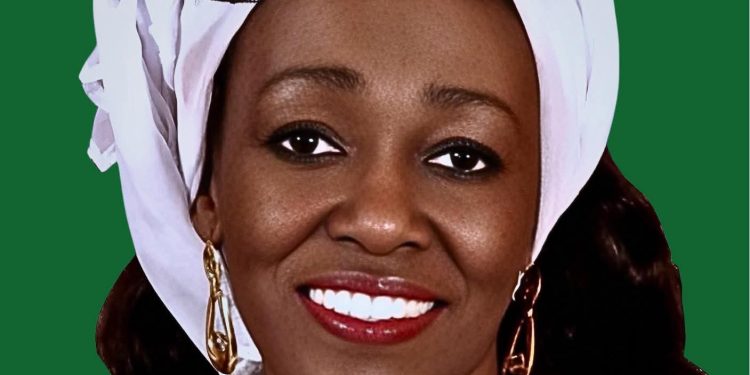The Mother of the Fourth Republic: A Tribute by Kay Codjoe
There are some women history cannot bury. They rise again in the conscience of a nation that once misunderstood them. Nana Konadu Agyeman-Rawlings was one such woman, a figure too immense for the comfort of her time, too resolute for the silence expected of a wife, too visionary to wait for permission. Her life was a paradox of grace and fire, a rare convergence of intellect and defiance that reshaped the very meaning of Ghanaian womanhood.
When Ghana’s revolutionary tide first broke in 1979, she was barely forty, young, brilliant, and restless with purpose. The man beside her, Flight Lieutenant Jerry John Rawlings, became the face of revolt. But the woman beside him became its conscience. She saw what power could forget, that a revolution without women is only half awake. And so, while others spoke of soldiers and decrees, Nana Konadu began a quieter revolution, one of mothers, traders, seamstresses, and daughters long forgotten by the republic that promised equality but delivered hierarchy.
The 31st December Women’s Movement was not born of privilege. It was born of observation, of women who rose before dawn to feed markets and children, of widows dispossessed by custom, of girls who could spell “freedom” but never touch it. Under her vision, the movement became a republic within a republic: thousands of women finding their voice, their dignity, and their collective power. They built schools where none existed, nurseries where mothers once prayed for time, and cooperatives where poverty lost its grip.
She had the rare gift of seeing politics as more than party, as moral architecture. In her, the Fourth Republic found not just a witness but a mother, one who labored to birth its ideals through pain, patience, and persistent struggle. The equality clauses in the 1992 Constitution were not accidents of modernity. They were footprints of her advocacy, her insistence that democracy without gender justice was an unfinished dream.
But greatness rarely arrives unopposed. Her courage made her enemies. Her intelligence unsettled courtiers of comfort. Her independence defied the quiet choreography of power where women are expected to smile, not speak. She was called ambitious, as if ambition were sin in a woman and virtue in a man. Yet she bore every wound with poise, and every insult with that imperious calm that made her both feared and admired.
When she stood before her party in 2011, challenging a sitting president for leadership, she did not merely contest an election; she tested the conscience of a nation. Her loss was political, but her defiance was historic. In that moment, she stood as Ghana’s first woman to demand, in full daylight, the right to lead. Not as wife, not as symbol, but as citizen.
Her founding of the National Democratic Party a year later was not rebellion. It was rebirth, a final assertion that a woman’s voice could build its own temple if the gatekeepers refused her entry. She walked that lonely road with dignity, and though her political returns were modest, her symbolic inheritance was vast. She proved that participation is not the same as permission, and that a woman’s worth is not measured by her proximity to a man’s power but by her courage to stand apart from it.
Now she is gone, and Ghana feels smaller. The silence she leaves is not the quiet of absence but the heavy stillness of a chapter closing before its full sentence was read. One cannot help but feel that her story deserved a gentler ending, a nation more grateful, and a world more honest about the cost of being a woman who dared too much.
But death, in its cold arithmetic, counts only years; history counts meaning. And by that measure, Nana Konadu Agyeman-Rawlings will outlive us all.
She mothered the vulnerable when the state was deaf. She confronted patriarchy when feminism had no microphone. She stood upright when history bent others into compliance. She was elegance that refused to be ornamental, intellect that refused to be muted, and loyalty that refused to be blind.
Yes, she was the Mother of the Fourth Republic not because she ruled it, but because she nurtured its conscience. She stitched equity into its constitutional fabric, sowed self-belief into its daughters, and dared its sons to respect the women who built the nation while they debated it.
And so, as her mortal body returns to the earth, Ghana must rise in mourning not as a gesture of formality, but as confession, that we too often crucify our prophets before canonizing them.
Sleep, Nana Konadu, in the light you lit for us. The seeds you planted are still germinating in the soil of a freer Ghana. History will not forget that when our democracy was in its infancy, you were its mother, demanding that it walk upright, speak truth, and see its women not as decoration but as destiny.
May your rest be full, and your name endure, as a testament that leadership is not inherited; it is earned, lived, and, in your case, immortalized.
Farewell, Mother of the Fourth Republic.
Ghana bows her head, not in pity, but in gratitude. Rest Well.








